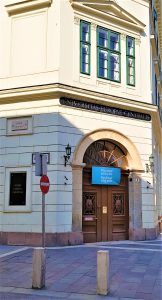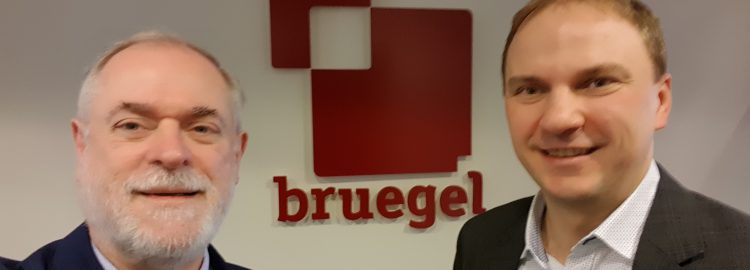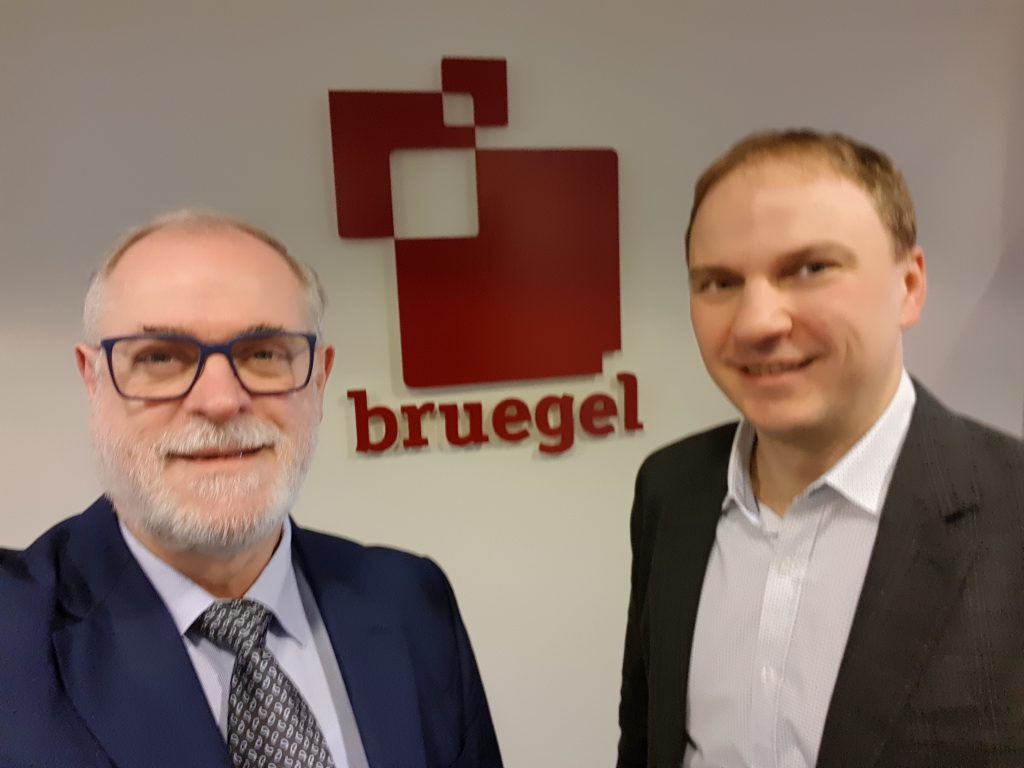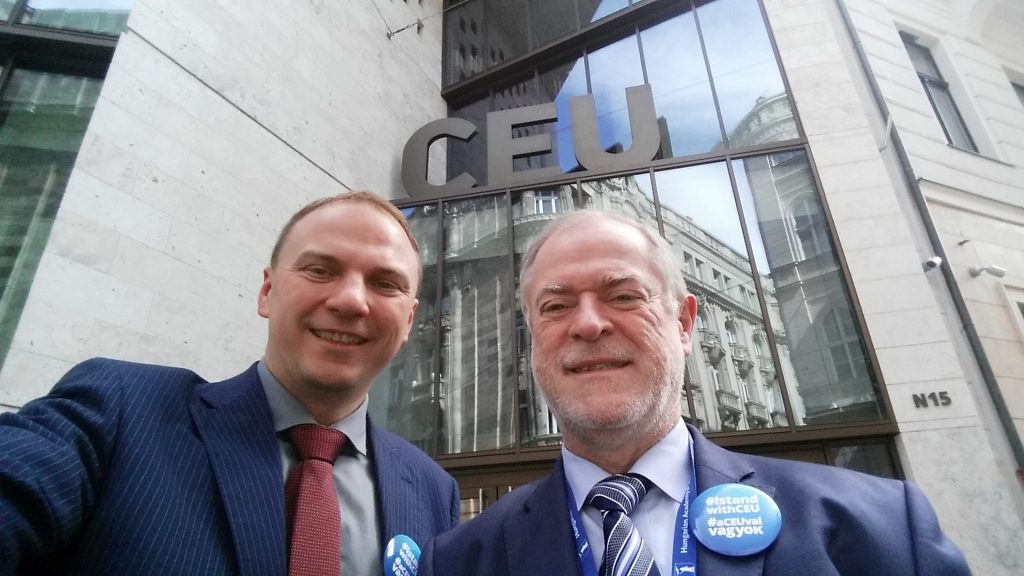Under political pressure of the Hungarian Government, the Central European University (CEU) has left this year Budapest for Vienna. Leaving behind a wonderful and perfect infrastructure, the university has found an attractive new place in Austria’s capital. The matter represents an important chapter in the global fight for academic freedom and evidence-based policy-making. The Global Labor Organization (GLO) had early on first followed and later on reflected the issue, always supporting CEU‘s case. CEU’s Martin Kahanec gave GLO’s Klaus F. Zimmermann an interview about the current state of this development.

Martin Kahanec, a prominent European economist, is currently Mercator Senior Visiting Fellow at Bruegel, Brussels, and was just selected by the Board of Trustees of Academia Europaea, the European Academy of Humanities, Letters and Sciences, as a member of its Section Committee of Economics, Business and Management Sciences. He is a Professor and former Acting Dean (2017-2019) of the School of Public Policy at the CEU. He is also Founder and Scientific Director of CELSI, Bratislava, a GLO Fellow, and a former Chairperson of the Slovak Economic Association (2016-2018).

Klaus F. Zimmermann is the GLO President, and has been the George Soros Chair at the School of Public Policy, in Spring 2019 in Budapest. Kahanec and Zimmermann have worked and published together over a longer period.
GLO: What can we learn from the CEU experience for academic freedom?
Kahanec: Let me mention three key lessons from this experience. First, never take freedom, and academic freedom in particular, for granted. Second, do not rely on politicians for its protection, it has become just one of the many tokens they are playing with. And there are many tokens they value more, such as political support in the European Parliament, or a military deal. Even worse, for some types of politicians an attack on an academic institution wins voters’ support. Third, we might lose a battle or two, but we will prevail as long as we do not give up nurturing and defending academic freedom. Free, open societies provide for innovation, critical thinking, and the pursuit of happiness and prosperity, and as such are more competitive and prevail in the long run.
GLO: How will this affect academic capacity building in Eastern Europe?
Kahanec: As the Hungarian government is trying to convince the general public that the expulsion of CEU is not a loss for Hungary, it downplays its academic excellence and invests in domestic capacity building – but including pro-Orban institutions only. It also facilitates the opening of branches of foreign schools – from carefully selected countries – in Hungary. For example, PM Orban recently personally supported the opening of Shanghai’s Fudan University campus and an elementary and high school connected to Turkish President Erdogan in Budapest.
But many of the prominent academics are leaving Hungary and yet more will decide not to come or return to, or cooperate with, Hungary. As many prominent Hungarian academics realized early on, the attack on academic freedom was not to be confined to CEU – it has affected the Hungarian Academy of Sciences and many Hungarian universities. In the long run, this will be a huge blow to the Hungarian academe. As the attack on CEU in several ways follows the script already applied in Russia and Turkey, it is clear there are negative spillovers. How the contagion will spread to the rest of Europe will also depend on how the European political elites will respond. So far they have a worryingly poor track record.
GLO: Will there be a chance for CEU to return back?
Kahanec: We are determined not to abandon Hungary and keep the Budapest campus. We will use it for non-teaching activities. As for our degree programs, my personal opinion is ‘never say never’.
GLO: How supportive is the EU and its Commission for CEU?
Kahanec: Some attempts to save CEU have been made, but they all have been eventually utterly ineffective. The EU has very limited instruments to protect democracy and freedom, let alone academic freedom, in its member states. The EU treaties did not really foresee, let alone provide safeguards against, rogue governments in its member states.
GLO: How well can CEU adjust in Vienna?
Kahanec: This will not be trivial, but we take this crisis as an opportunity to reinvent the university and to update its mission in order to even more strongly respond to the deep challenges societies around the globe are facing. We are opening new programs in Vienna, and I am proud to have stood, as the dean of CEU’s School of Public Policy, at the cradle of the new Masters’ program in International Public Affairs – the first graduate degree program that Central European University accredited in Austria to establish CEU in its new home in Vienna. And I must say, I am deeply impressed by, and grateful for the support from Austrian academics and institutions. There will be many challenges, but I am confidently looking forward to CEU’s future in Austria.

Ends;



